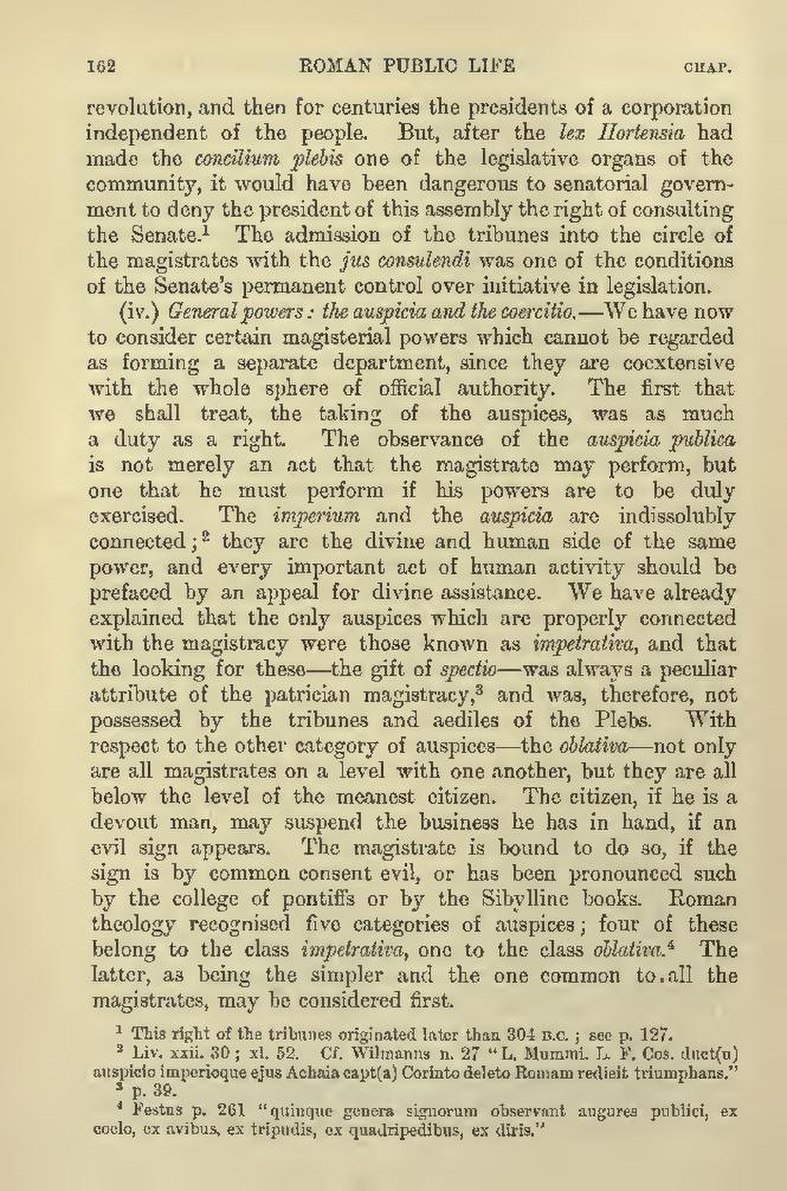revolution, and then for centuries the presidents of a corporation independent of the people. But, after the lex Hortensia had made the concilium plebis one of the legislative organs of the community, it would have been dangerous to senatorial government to deny the president of this assembly the right of consulting the Senate.[1] The admission of the tribunes into the circle of the magistrates with the jus consulendi was one of the conditions of the Senate's permanent control over initiative in legislation.
(iv.) General powers: the auspicia and the coercitio.—We have now to consider certain magisterial powers which cannot be regarded as forming a separate department, since they are coextensive with the whole sphere of official authority. The first that we shall treat, the taking of the auspices, was as much a duty as a right. The observance of the auspicia publica is not merely an act that the magistrate may perform, but one that he must perform if his powers are to be duly exercised. The imperium and the auspicia are indissolubly connected;[2] they are the divine and human side of the same power, and every important act of human activity should be prefaced by an appeal for divine assistance. We have already explained that the only auspices which are properly connected with the magistracy were those known as impetrativa, and that the looking for these—the gift of spectio—was always a peculiar attribute of the patrician magistracy,[3] and was, therefore, not possessed by the tribunes and aediles of the Plebs. With respect to the other category of auspices—the oblativa—not only are all magistrates on a level with one another, but they are all below the level of the meanest citizen. The citizen, if he is a devout man, may suspend the business he has in hand, if an evil sign appears. The magistrate is bound to do so, if the sign is by common consent evil, or has been pronounced such by the college of pontiffs or by the Sibylline books. Roman theology recognised five categories of auspices; four of these belong to the class impetrativa, one to the class oblativa.[4] The latter, as being the simpler and the one common to all the magistrates, may be considered first.
- ↑ This right of the tribunes originated later than 304 B.C.; see p. 127.
- ↑ Liv. xxii. 30; xl. 52. Cf. Wilmanns n. 27 "L. Mummi. L. F. Cos. duct(u) auspicio imperioque ejus Achaia capt(a) Corinto deleto Romam redieit triumphans."
- ↑ p. 39.
- ↑ Festus p. 261 "quinque genera signorum observant augures publici, ex coelo, ex avibus, ex tripudis, ex quadripedibus, ex diris."
